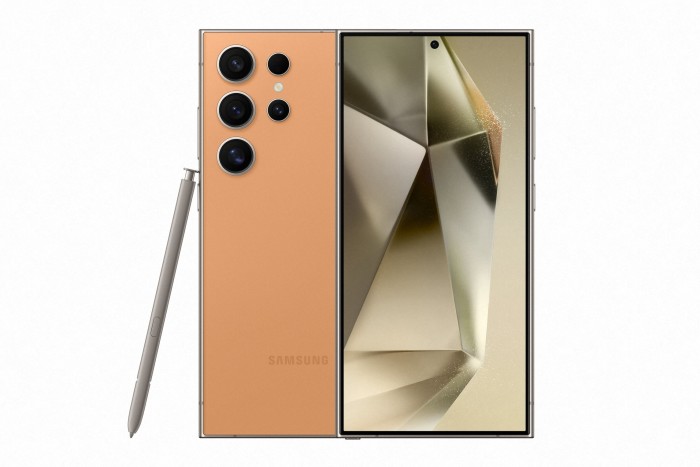Samsung Electronics has revealed smartphones with the capability to support generative artificial intelligence features directly on the device, as manufacturers aim to breathe new life into a market that faced its toughest year in a decade in 2023.
At a Silicon Valley event, the South Korean tech giant unveiled the 2024 editions of its flagship Galaxy smartphone series. These devices are equipped with the latest AI-enabled Snapdragon processor from Qualcomm, a US-based chipmaker, along with Samsung’s own Galaxy AI software and services.
The S24 Android phones mark a significant technological advancement for Samsung over its primary competitor Apple, which has traditionally been more cautious in embracing new technologies. Moreover, the January launch of these devices provides Samsung with a roughly nine-month head start before the next iPhone hits the market.
According to Bryan Ma, an analyst at the IDC research group, “[Android developer] Google has a significant advantage in AI due to its vast data and experience in this field. However, Apple’s efforts in this area have been relatively subdued, presenting Samsung with an opportunity to differentiate itself from its rival.”
After a 12-year dominance as the world’s leading smartphone manufacturer in terms of units sold, Samsung relinquished its top spot to Apple in 2023, as reported by IDC. This shift was propelled by consumers upgrading to higher-priced premium smartphones.
The proliferation of generative AI, exemplified by OpenAI’s ChatGPT, has spurred mobile phone manufacturers to explore the potential of integrating AI features directly into devices. This transition necessitates advancements in shrinking the size of large language models powering AI and enhancing processor performance.
Overcoming these technological hurdles will enable AI chatbots and applications to operate on the phone’s internal hardware and software, eliminating the need for cloud services in data centers. This shift promises faster response times, heightened security, enhanced personalization for users, and cost savings for AI providers.
Google has been actively developing on-device AI for its Pixel smartphones, while Samsung unveiled its Gauss model for phones and other devices in November. Several Chinese smartphone makers, including Honor, Oppo, and Xiaomi, are also embracing this trend.
Samsung recently introduced a range of AI-powered features for its three new phones, such as real-time phone call translations, voice recording transcriptions, video search capabilities, and photo editing functionalities. The pricing for the S24, S24 Plus, and S24 Ultra models in the US will range from \(800 to \)1,300.
TM Roh, the head of Samsung’s mobile division, stated, “The Galaxy S24 series introduces mobile AI in a manner that sets it apart from any other phone available to date. Our goal is to showcase the advantages of mobile AI and offer Galaxy users transformative mobile experiences.”
In a recent analysis, Sheng Win Chow, an analyst at Canalys, emphasized the significance of generative AI in Samsung’s long-term product strategy, particularly within the premium and flagship segments. To stay competitive with Apple and maintain its leadership in the Android ecosystem, Samsung must innovate not only in hardware but also in software and business models.
Canalys projects that 5% of smartphones shipped this year will be AI-capable, reaching 635 million units, which accounts for 45% of the total smartphone market by 2027. Similarly, Counterpoint Research anticipates that Samsung will dominate nearly half of the AI-powered phone market in the coming years.
While IDC forecasts a 3.2% growth in the global smartphone market this year after a 4% decline to a ten-year low in the previous year, Ma highlighted that the recovery is more closely tied to the improving economic conditions rather than AI advancements specifically.
Despite the inclusion of some AI functionalities in most smartphones, analysts are skeptical that Samsung’s new AI features alone will drive a significant upgrade cycle. However, they suggest that these features could stimulate demand for IT devices overall if AI-capable phones are seamlessly integrated with other devices like cars, home appliances, and PCs.






